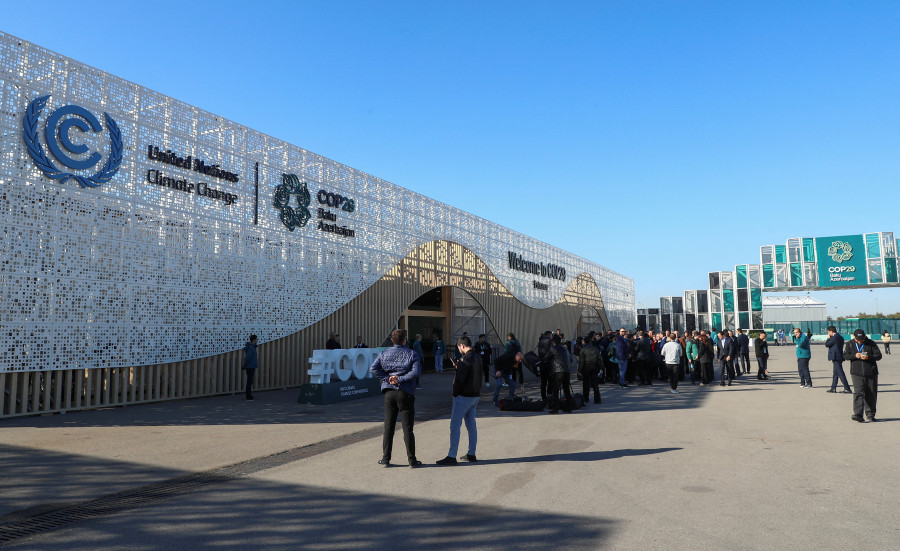Editorial
Not COP-ing well
Nepal must make the case for itself and other developing countries impacted by climate change.
Nepal is increasingly under the siege of the adverse effects of climate change. This year too the country witnessed the monsoon continuing beyond the end of the normal monsoon season, flooding the country until late September. Similarly, in August, the glacial lake outburst flood (GLOF) in Solukhumbu district swept away several houses and displaced 135 people in Thame village, a prominent destination in the Everest region. The fears about climate change seem to be coming true. Unfortunately, the worst is yet to come, with the Himalayas projected to reach the ‘peak GLOF risk’ by 2050, according to the International Centre for Integrated Mountain Development (ICIMOD).
The Conference of the Parties (COP), the annual global platform on climate change, has provided developing countries with the opportunities to discuss the issue, negotiate compensation and demand accountability for the impacts of climate change with developed countries whose carbon emissions disproportionately drive global warming. As a negligible contributor to carbon emissions and among the most vulnerable countries to climate change, Nepal will conduct a high-level session on climate change under President Ram Chandra Paudel’s leadership in Baku, Azerbaijan today. The country’s agenda for COP-29 includes protecting its Himalayas, securing committed climate finance, improving access to climate funds and asking for the quick operation of the loss and damage fund established last year. Yet, a big question remains: Can Nepal’s leaders effectively convey these urgent needs at COP, and will these discussions lead to concrete action back home?
Domestically, Nepal’s climate policies are often sidelined due to political inaction. The Nationally Determined Contributions (NDCs) should be updated to reflect developing climate scenarios and national priorities. Yet, from 2020 to 2023, Nepal’s NDCs remained stalled. Only last year was an updated version, also called the second NDC, finally approved. However, this leaves us less time to progress before countries submit updated NDCs by 2025. Moreover, in successive COPs, Nepal’s representatives have failed to make their case convincingly, reducing such conferences to formalities. The developed countries, for their part, meet, discuss and commit but fail to reduce the impacts of climate change by mitigating the use of fossil fuels. There are also concerns that Donald Trump, as the new American president, could pull the US out of the Paris Agreement, as he did in his last tenure. This will further dampen the spirit of such conferences.
Despite such challenges, Nepal should continue to strongly raise its voice for compensation for low-carbon-emitting countries. It must also join hands and speak with one voice with other developing countries facing adverse effects of climate change. This year’s COP is focused on climate finance, but as important is securing firm commitments from high-emission countries to reduce their fossil fuel dependency. Without behaviour changes alongside financial support, progress will remain limited. Developing countries should consistently monitor these commitments; multilateral agencies like the United Nations, often criticised for toothlessness, should heed their concerns by holding developed nations to a higher sense of accountability.
Last year, Nepal’s climate concerns received global exposure with UN Secretary-General António Guterres’s call for serious attention toward the Himalayas and the nation. Ahead of this year’s conference, Paudel and Guterres briefly discussed climate change issues during their journey to Baku, Azerbaijan. Failing to capitalise on this attention or underplaying Nepal’s role at the conference would be a missed opportunity with lasting repercussions. Our climate leaders can make much more of the COP platform to protect lives and livelihoods at home.




 13.12°C Kathmandu
13.12°C Kathmandu














